#erp software for manufacturing
Explore tagged Tumblr posts
Text
Top ERP software Companies in Ahmedabad | STERP | shantitechnology
Welcome to the world of efficient business management with Shantitechnology (STERP), a leading ERP software company in Ahmedabad. As one of the top ERP solution providers in Ahmedabad, Shantitechnology offers comprehensive and cutting-edge ERP software solutions tailored to meet the unique needs of businesses across various industries. With their expertise and experience, they have revolutionized the way businesses operate in Ahmedabad, empowering companies with seamless integration, streamlined processes, and enhanced productivity.
Trust Shantitechnology (STERP) to be your trusted partner for all your ERP software needs in Ahmedabad, as they continue to pave the way for success and growth in the ever-evolving business landscape.
#ERP software Companies in Ahmedabad#ERP solution providers in Ahmedabad#ERP software in Ahmedabad#ERP software company in Ahmedabad#ERP system#cloud ERP#ERP solutions#ERP software for engineering#ERP software for manufacturing
7 notes
·
View notes
Text
0 notes
Text
Why ERP's Major Role in 4.O Manufacturing Industry?
Major Role of ERP for 4.O Manufacturing Industry
Today, the manufacturing industry is changing faster than ever before, and this has been accelerated by the coming of the fourth industrial revolution. This new one is said to be the fourth industrial revolution which integrates complex manufacturing with intelligent systems. To support this transition, Enterprise Resource Planning (ERP) systems including SAP Business One has gained centrality. They make work easy, faster, and even enable real-time analysis of data that is being captured. To maintain competitiveness and innovativeness of the 4.O manufacturing industries, companies are implementing ERP to respond and perform well to these changes.
Understanding ERP Systems in Manufacturing
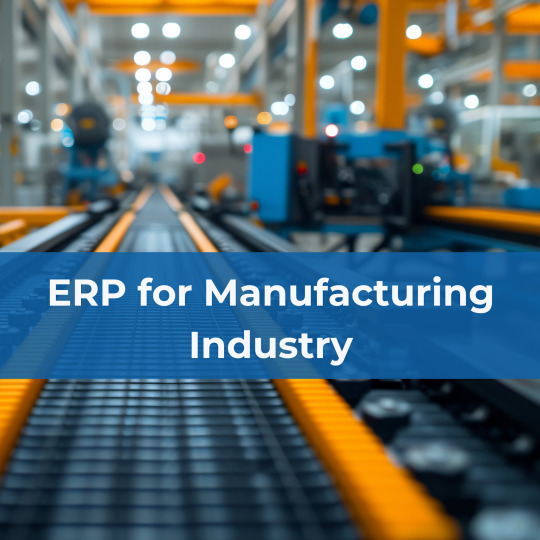
You might have often thought about how the modern manufacturing companies keep all the running going. Enter ERP systems! ERP stands for Enterprise Resource Planning: it is like the brains of the manufacturing operations . It allows companies to make efficient decisions in order to control and/or develop all organizational fields. So let’s take a closer look at what makes ERP tick in the manufacturing environment.
Definition and Components of ERP
ERP systems are integrated application systems that attempt to achieve a single year of operations and manufacturing business management. Think about having a superhero that doesn’t save the world, but helps businesses to save their time and money! That’s ERP for you. It includes production, materials management, logistics, financial, personnel and public relations.
The components of an ERP system can be mind-blowing but wait for it! Here’s a quick rundown:
- Financial Management: Works in finance, perpetuates data, budgeting, and reportage.
- Supply Chain Management: Improves the efficiency of the material and product supply chain all the way through to the customer.
- Production Management: Oversees production activities with significant emphasis on ways to get them as optimized as possible.
- Inventory Management: Monitors stock status as well as the functioning of a warehouse.
- Human Resources: Is responsible for recruitment and selection of employees, processing of employees’ salaries, and recording of their details.
- Customer Relationship Management (CRM): Responsible for handling customers and records their sales.
These are integrated where each element provides an overview of the business processes and makes certain that pertinent information is assembled, conveyed and received appropriately.
History and Evolution of ERP in Manufacturing
Today, ERP is a complex system but it has come through a long evolutionary process starting out as a simple system with limited functionality. Initially, ERP systems emerged from materials requirement planning (MRP) systems as created in the 1960s and 1970s. These MRP systems were implemented with an aim of providing solutions on how much raw material to order and when.
Fast forward to the 1990s, ERP Systems were not only planning materials but extending to adaptive processes of the enterprise. When getting deeper into the 2010s, one could talk about cloud computing as an essential booster for business development. It made ERP systems access, flexibility, and scalability possible. Today, manufacturers have systems like SAP Business One that accounts for the dynamic need of manufacturers globally including the active manufacturing industry in India.
Key Features of ERP Systems for Manufacturing
Today’s ERP systems are chock full of functions that make them essential to any manufacturing organization. Here are some key features that stand out:
- Integrated Operations: Another key value of ERP is its efficiency at the centralization of activity. They disintegrate various portfolios of a business by effectively linking business processes while providing easy access to information.
- Real-Time Data Access: In ERP, one is in a position to make decisions because most of data is updated with real time data. This immediate visibility is vital because organizations need to be competitive when the new environment emerges.
- Automation: ERP helps the firm to complete several operational activities such as processing orders and remunerating employees and several other activities thereby leaving the employees time to focus on other critical activities in the business.
- Regulatory Compliance: Most of the ERP systems are equipped with compliance modules to ensure that the organization does not fall foul of the set legislation resulting in costly fines.
- Scalability: That is why ERP systems are regarded as a good investment, for the small local manufacturer or for the worldwide leader, as the systems are developed with the ability to grow with the organization.
From the brief outline of what ERP systems are, let's now proceed to the discussion of the effects and applications of ERP systems in real life manufacturing.
The Impact of ERP on Manufacturing Processes
The impact of ERP systems on manufacturing processes is significant and transformative. They don't just help run the business; they take manufacturing to a whole new level of efficiency and effectiveness.
Streamlining Production Planning and Inventory Management
ERP can be regarded as a wizard that sends manufacturers to order appropriate inventory at the correct time. Through ERP, production planning is done effectively and in a way that enables institutions to meet customer demand and needs without incurring many losses through retaining many inventories within its fabric or through often shutting down production.
- Efficient Resource Allocation: This is helpful in that ERP enables organizations to schedule production plans and control aspects of resource utilization in order to reduce time wastage and optimize efficiency.
- Inventory Optimization: Inventory management is another key area where ERP systems make a lot of difference by automating inventory and controlling optimum stock levels to cut down carrying costs and to avoid situations where you may run over or short of stock.
- Forecasting: While years past may inspire certain educated guesses on the manufacturers part, ERP for demand planning provides fact-based insight, which in turn increases satisfaction among clientele.
Improving the Quality of Control and Assessments
For any manufacturing company, quality always reigns supreme and it’s at this point where the ERP system comes in handy. These tools enable organizations with real time monitoring and quality assurance of the final product within ERP systems.
- Process Monitoring: In using the ERP systems, there is a way to monitor the production processes in real time, and variations affecting quality can be ascertained at once.
- Traceability: In the case of a problem, ERP generates a complete traceability trail to control and handle product recall or defect problems, lessening danger and protecting brand reputation.
- Compliance and Reporting: Time-consuming tasks of documentation and report generation are also automated, and this Reuel asserts that quality is not a mere aim, but a guarantee.
Improving Supplier and Customer Relationship Management
Good relationships with suppliers and customers are crucial in the manufacturing sector. ERP systems facilitate these relationships through better communication and data management.
- Supplier Collaboration: With ERP, manufacturers can work closely with suppliers by sharing forecasts and demands, improving lead times and reducing supply chain disruptions.
- Customer Satisfaction: From order tracking to managing customer feedback, ERP systems enhance the customer experience by ensuring timely deliveries and quality service.
- Data Sharing: ERP systems aggregate customer data, allowing manufacturers to understand buying patterns, preferences, and feedback, leading to tailored marketing strategies and improved product offerings.
Thus, ERP systems are not only hardware but it is platforms that change games for the manufacturing unit of an organization. They let the manufacturers be efficient, establish adequate control over the quality of goods, and maintain a good and solid supply chain with the suppliers and customers. In the context of Industry 4.0 which is gradually defining the future of manufacturing, an ERP system is well-positioned to ensure that a business remains relevant, complies with the law, and delivers excellent customer experience.
Therefore, if you have been in the manufacturing sector and have not incorporated ERP magic, then wouldn’t it be of immense benefit to think about it right now. Since the future of manufacturing in India and across the world is right tied with these systems, the ERP integration can be your key to novelty and victory.
There you have it! ERP systems translated for the new generation manufacturing enterprises. Well, it is time to work better, not more!
Benefits of Implementing ERP for Manufacturing Industry

Enterprise Resource Planning (ERP) systems is become a new trend in manufacturing industries particularly in 4.0 manufacturing context. An ERP system is capable of linking different business processes which act as a technological advantage for manufacturers and greatly enhances their operations. Now that we have established the foreground information it is about time we look at some of the aspects that stand to gain from the integration of the ERP systems in the manufacturing industry.
Better performance, efficiency and productivity
In the very center of any manufacturing company, it is possible to single out such notions as effectiveness and output. Essentially, ERP for manufacturing industry help in enhancing these aspects since the systems incorporate optimized processes of various departments. ERPs perform repetitive as well as redundant processes automatically and hence reduce the capacity of people in making mistakes. For example, the ERP systems can provide the link between the manufacturing or production plan and the inventory to ensure that right material is available on the shop floor when needed, eliminating unnecessary idle time.
Furthermore, ERP systems are integrated information systems in which employees can find actual information related to various activities, so employees can make the most of their time instead of spending time and efforts to search for information. Since information flow between departments is not disrupted, problems that may slow down workflow are realized early and solved, which increases efficiency. This is important in an industry where timing is of the essence!
Cost Reduction and Profit Maximization
Meeting cost reduction targets have always been a prerequisite to survival in manufacturing especially where profit margins have to be optimized. It is toward this objective that ERP systems play a very crucial role to offer manufacturers a wealth of information on their operations. Because ERP systems incorporate detailed records of cost related to production processes, inventory, and supply chain management, the systems afford the businesses opportunities to reduce meaningful costs of production.
Moreover, by accurately predicting the demand for products in an organization and handling the levels of stocks being put in place ERP systems enhance stocks management. It helps to avoid overproduction and underproduction that cause lots of financial losses in the business. In addition, since the processes are mostly performed automatically, one of the main factors that decrease the overall labor cost are achieved, thus resulting in an improved profitability.
Real-time Data Analytics and Decision Making
That said, real-time data analysis for better decision-making increases the potency of ERP systems in manufacturing . Since many industries have become data-oriented, it is critical to have real-time data when making business decisions. By having an ERP system, it is possible to track KPIs on manufacturing as well as predict trends that may affect manufacturing efficiency or the market.
It also helps to increase response time to changes in supply and demand, so that manufacturers can fit their actions to the market. Further on, upgrade in data visibility results in enhancement in forecast and planning which in turn result in better resolution and utility of resources and enhanced customer satisfaction. This can be achieved by optimizing the use of data so that manufacturers may know their competitors better and hence capture the right market opportunities for growth.
Challenges in ERP Software for Manufacturing Industry
There are many benefits to ERP systems in manufacturing organizations but it is not without its issues in the transition. Here are some of the usual problems manufacturers encounter while implementing ERP systems and how the latter can be addressed.
Interoperability with Other Systems
Manufacturers find it quite challenging to integrate the new ERP Software for Manufacturing Industry with the rest of the existing legacy systems. A high percentage of manufacturing organizations still employ suboptimal methods and technologies incompatible with up-to-date ERP systems. Depending on the degree of incompatibility, there can be some loss of efficiency during the period necessary to resolve it, as well as certain costs associated with time loss.
To counteract impediments to integration, manufacturers need to evaluate integration readiness by performing a current state assessment of manufacturing systems prior to ERP adoption. It is crucial in this evaluation to determine potential conflicts and assist in the creation of a detailed integration strategy. However, there are several steps to consider when implementing the choice of an ERP system in the following aspects: Furthermore, selecting the ERP system that provides capabilities of integration and flexibility can eliminate some of these challenges. It also helps if one has worked with experienced ERP vendors or consultants, who would be better placed to appreciate the different factors involved in implementing a manufacturing system.
Managing Change and User Adoption
Implementation of a new ERP system may lead to substantial changes in practices of a manufacturing enterprise, as well as redefine roles and tasks of employees. The employees may resist change as some may prefer sticking with the current systems in place. One of the most significant tasks here remains guaranteeing a seamless transition and post-implementation acceptance.
To address this, manufacturers should encourage openness and engage the users at the initial stage. Delivering training that is more extensive and engaging in collecting feedback from the employees can foster confidence and promote acceptance. Concerns can also be addressed by providing information on what the new ERP system will do for them and how it is going to facilitate their operations. This means that every change management strategy ought to be incremental and should illustrate how the change affects the employees in the short run.
Ensuring Data Security and Compliance
In the current world where operations and almost everything are computerized, there is high demand for protection of data, particularly in manufacturing industries. The integration of a new ERP system poses risks inherent with exposure to data and threats pertinent to industry standards. Managers working for the manufacturing firms have to guarantee that the company and clients’ data is safeguarded from unauthorized access or cyber threats.
In their choice of an ERP provider, manufacturers are advised to put security into consideration and look for the provider with robust security policies and compliance compliance certificates. This involves having aspects of encryption, rules for accessing data, and even a security check in the program to check for vulnerabilities. Furthermore, to ensure data accuracy, data utilization, and adherence to legal requirements, a solid foundation for data governance has to be built. To address security risks during the implementation of ERP and also after the implementation, other necessary measures include security training of the employees and security awareness within the firm.
Thus, ERP systems are also crucial applications for updating and enhancing operations in the 4.0 manufacturing environment. The advantages of increased efficiency, decreased costs, and evidence-based decision-making are evident, however, they include a number of integrating concerns that relate to change and data management and protection. If implemented and managed properly, manufacturers can use all the possibilities of ERP systems to boost their innovations, productivity, and revenues.
Future Trends and Innovations in ERP for the Manufacturing Sector
The manufacturing world is changing and at the heart of this change is ERP, or Enterprise Resource Planning. Thus, the applicability of ERP systems does not diminish when industries first set out on Industry 4.0. Let me explain what technology is doing to ERP to define the future of the manufacturing industry.
Integration with IoT and IIoT
But the most significant trend is the integration of the ERP systems with the internet and, in particular, with the Internet of Things (IoT) and Industrial Internet of Things (IIoT). This integration allows machines to feed data to ERP systems and this data is always current to help in efficient decision making. For instance, an assembly line would detect that it requires repair, and the information gets input to the ERP system, the system informs the maintenance department or even orders spares. All these can be achieved through the integration which can eventually help to cut down the much needed downtime.
AI and Machine Learning Improvements
If you are new to the world of technology, chances are that you have heard about Artificial Intelligence (AI) and Machine Learning (ML) before. These technologies are helping ERP by giving them forecasting and analysis. With AI-powered ERP platforms, manufacturers can:
- Predict equipment failures: Similar to human operators, AI Algorithms can assess and interpret patterns in the data that point towards possible failure of a machine in order to rectify the problem before it happens.
- Optimize supply chains: Thus, ML can discover from historical information about supply routes and timings and recommend the most effective ones with the least hindrance and requisite.
- Enhance quality control: Thus, through analyzing big data, it is possible to detect imperfections in production and reach a higher quality, earlier.
Cloud-Based ERP Solutions
The move toward cloud-based ERP has continued to grow, providing benefits that on-premise systems cannot; namely; flexibility and scalability. Cloud ERP systems allow manufacturers to:
- Access data anywhere, anytime: They can be P/C or mobile, but remain in touch with the factory floor in real time.
- Easily scale operations: With cloud solutions, as companies expand, there is little need to overhaul the infrastructure of the delivery process.
- Improve collaboration: Improve the coordinator and effective communication and interaction between different departments and locations and if possible between sites all over the world.
Cybersecurity Measures
Digital transformation, as well as interconnected systems and networks, the issue of cybersecurity remains the key priority. As the ERP systems progress, organizations are having stricter measures to cover for the critical information. Some of the characteristics that are normal to find nowadays are more secure and stronger encryption modes, two or three factors of authentication, and real time monitoring. For manufacturers, this means more secure data, as well as a minimized chance of a cyber threat that might affect performance.
Bespoke and Friendly Modules of an ERP System
The ‘Fortune 500’ mentality is no longer dominant as gods-like ERP systems of the past were ponderous and hostile. Organizations are now moving to more natural and user friendly interfaces. One of the recent trends in modules of an erp system is that design in terms of UI/UX is gradually improving. These systems can be easily operated by the employees or the technical workforce, little learning time is required thus making the entire process efficient.
ERP and Sustainability
Environmental or ecological responsibility is rapidly becoming an important issue to manufacturers in the global marketplace. The latest developments in ERP solutions are in compliance with these green programmes through supporting the analysis of resource consumption and waste generation by companies. Features include:
- Tracking carbon footprints: ERPs can estimate the amount of emissions made and provide solutions on how to optimize emission’s figures.
- Efficient resource management: Inherent in systems is the effectiveness in the put to use of materials thus discouraging the use of the excess and encouraging recycling.
- Compliance with environmental regulations: Real time updates and reports make it extremely easy for manufacturers to implement compliance with regulatory metrics.
ERP Systems will continue to be part of the manufacturing industry as it prepares to march forward into the next phase. Based on the presented trends and innovations, manufacturers can not only improve their operations but also become pioneers of the new generation 4.0 industry. From integrating new technologies to operating in the cloud, to sustainability initiatives, ERP is a virtually limitless platform. Therefore, to a bright, efficient and innovative future of the manufacturing sector with ERP at the heart of it – cheers.
#erp software#erp solution#erp for manufacturing industry#sap business one#manufacturing industry#erp software for manufacturing
0 notes
Text
#ERP solutions for manufacturing#manufacturing ERP software in Pune#ERP software#ERP software for manufacturing#cloud ERP software for the Manufacturing Industry
0 notes
Text
Upraise your Manufacturing business with Transines Solutions
Step Up Your Manufacturing Game and Embrace the Future-Ready Manufacturing Landscape
For business management, companies prefer a single software that can manage all the departments, like the accounting section, CRM management, sales and purchase section, and manufacturing field. Odoo simplifies all the different business stages and sections and integrating Odoo ERP for manufacturing will empower the business with increasing efficiency.
ERP software is the most important for a company since progress depends highly on the ERP System a company uses. the RRP System can make a business shine. So, a business should follow before choosing the Odoo Partner in UAE.
One Software for the Manufacturing processes Odoo ERP for the manufacturing business revolutionizing in the UAE market as the best manufacturing software.
Odoo Manufacturing Software Features
Odoo manufacturing ERP software is an ideal platform for production managers working in the manufacturing field. with Odoo ERP manufacturing businesses can get the Maximum retail price, execution systems (MES), Product lifecycle management (PLM), ERP Maintenance, and everything you need. the manufacturing ERP Simulates business operations in real-time, Manufacturing orders, capacity planning, components availability, and cost control. Odoo has barcode scanning for lots or serial numbers.
SCHEDULE YOUR ODOO CONSULTATION WITH TRANSINES SOLUTIONS
Business Scheduling with Odoo
Businesses must have experienced the pressure of hitting a deadline. Odoo ERP allows you to plan schedules with MRP Scheduler, multiple levels billing, a Kit for salespersons to sell products, and more
Manufacturing ERP lets you transform into a complete paper-free company, feedback scheduling, so the employe ain't want waste time in the manufacturing process.
Manufacturing business management software is a transformative power in the manufacturing industry. Odoo ERP helps with the processing of quality products and product maintenance, Odoo holds an automatic feature in the IoT box to trigger a quality check of all products before sending them to the manufactory. and Odoo provides a full maintenance report calculated from statistics.
The control panel has several convenient options like production recording, worksheets, alerts, work order steps, etc. Also directly from the work center more processes can created such as scraping products, perform checking and quality alerts creation.
Simplify cost counting with ease
Odoo Simplifies the manufacturing cost counting as it firstly calculates the cost of the components and the cost of operations, for sample, labor or material, and then tracks the cost of manufacturing consequently. All the traceability reports of the components used in the manufacturing business are accessible. Odoo Allows users to identify trends, uncover opportunities for improvement, and continuously optimize.
Transines Solutions Provides Odoo ERP Solutions to UAE businesses to raise the quality of your manufacturing business to another level with our Odoo Manufacturing Software. To learn more contact us
Also Read: How Odoo ERP can benefit the manufacturing industry
0 notes
Text
The Ultimate Guide to ERP Software for Manufacturing Success
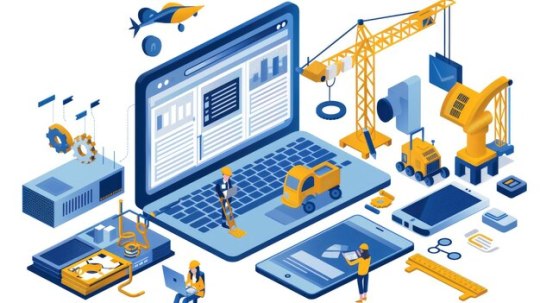
Get the ultimate guide to ERP software for achieving success in manufacturing. This comprehensive resource covers everything from system selection to implementation, ensuring your business thrives.
0 notes
Text
In search for the professional solution for MYOB accounting software? MYOB or ABSS is an accounting system that is uniquely formed for all businesses.
More info :- https://ostendoasia.com/property-management-software/
0 notes
Text
Embracing a Future-Ready Manufacturing Approach
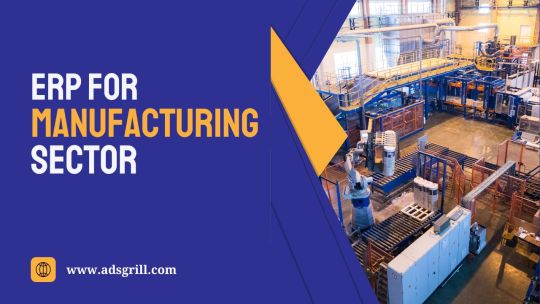
ERP software for manufacturing, also known as Enterprise Resource Planning software, is a sophisticated suite of integrated applications specifically designed to facilitate and manage various facets of manufacturing operations. From production planning and inventory management to supply chain coordination and customer relationship management, ERP solutions for manufacturing consolidate diverse functions into a unified platform.
As industries continue to evolve, the significance of manufacturing ERP software becomes increasingly evident. This technology not only optimizes current operations but also paves the way for future growth and scalability. Businesses that embrace ERP solutions position themselves at the forefront of innovation, equipped to tackle challenges and capitalize on opportunities in an ever-changing marketplace.
In conclusion, manufacturing ERP software transcends conventional operational paradigms. Its capacity to harmonize various aspects of manufacturing under one digital roof enhances productivity, efficiency, and agility. By integrating production, inventory, and supply chain management, ERP software empowers manufacturers to navigate complexities with confidence and chart a trajectory toward sustainable success.
#erp for manufacturers#erp for manufacturing#erp for manufacturing industry#erp software for manufacturing#erp solutions for manufacturing#erp systems for manufacturing
0 notes
Text
ERP Software For Manufacturing Industry In Malaysia: Hypernix
The Malaysian manufacturing sector stands as a dynamic force within the nation’s economy, contributing significantly to industrial growth and employment. As this sector continues to expand, it faces a multitude of challenges that hinder its full potential. One powerful solution that has emerged to address these challenges is Enterprise Resource Planning (ERP) software. In this article, we delve into the transformative impact of ERP software on Malaysia’s manufacturing industry, shedding light on its benefits, real-life success stories, implementation considerations, and future prospects.
The manufacturing landscape in Malaysia is evolving rapidly, with increased globalization and technological advancements reshaping industry norms. In such a dynamic environment, optimizing production processes becomes paramount for sustaining growth and competitiveness. ERP software emerges as a pivotal tool that holds the potential to streamline operations and foster efficiency across various facets of manufacturing.
The Current Landscape of Malaysia’s Manufacturing Sector
Despite its growth, Malaysia’s manufacturing sector encounters challenges such as fragmented processes, information silos, and complex supply chain management. These challenges often lead to inefficiencies, missed opportunities, and increased operational costs. To address these issues, manufacturers are turning to modern solutions like ERP software.
Understanding ERP Software
ERP software acts as a comprehensive suite that integrates and manages core business functions, from finance and human resources to production and inventory management. By serving as a centralized hub of data and processes, ERP software breaks down information barriers and fosters seamless communication across departments.
Transformative Benefits of ERP Software for Malaysian Manufacturers
Improved Production Planning and Scheduling: ERP software enables manufacturers to optimize production schedules, allocate resources efficiently, and reduce downtime, leading to increased productivity and minimized costs.
Inventory Management: With real-time visibility into inventory levels and demand patterns, ERP systems help manufacturers maintain optimal stock levels, reduce stockouts, and mitigate excess inventory costs.
Real-time Data and Insights: ERP software provides a real-time overview of production processes, empowering decision-makers with accurate data for informed choices and rapid responses to market shifts.
Quality Control and Compliance: ERP systems facilitate quality control by enforcing standardized processes and compliance with industry regulations, ensuring consistent product quality and reducing the risk of non-compliance penalties.
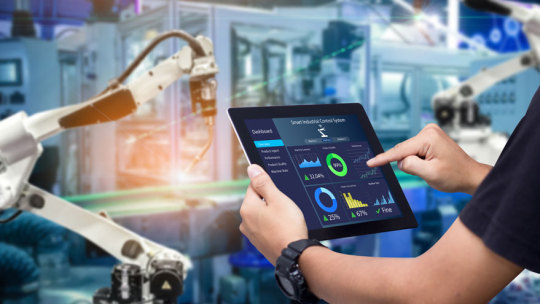
Supply Chain Optimization: By connecting suppliers, manufacturers, and distributors within a unified platform, ERP software enhances supply chain visibility, coordination, and responsiveness.
Overcoming Implementation Challenges
While ERP software promises transformative benefits, successful implementation requires careful planning and execution. Manufacturers need to address challenges such as data migration, employee training, change management, and customization to ensure a smooth transition.
Choosing the Right ERP Solution for Your Business
Selecting the optimal ERP solution is a pivotal decision that warrants thorough consideration. As manufacturers in Malaysia seek to enhance their production processes, it’s essential to align with a solution that caters to their specific needs. Among the array of options available, it’s noteworthy that our company, Hypernix, stands out as a trusted provider of cutting-edge ERP software tailored for the Manufacturing Industry in Malaysia.
Hypernix: Your ERP Partner for Manufacturing Excellence
At Hypernix, we understand the intricate demands of the manufacturing landscape in Malaysia. With a deep appreciation for the sector’s unique challenges and opportunities, we have crafted an ERP software solution that is finely tuned to address the nuances of Malaysian manufacturing operations.
Our ERP software is meticulously designed to streamline every facet of production, from inventory management and supply chain coordination to quality control and real-time data insights. With Hypernix ERP, manufacturers gain a competitive advantage through enhanced visibility, operational efficiency, and the agility needed to navigate the dynamic market landscape.
Future Trends and Innovations
The future of ERP software in Malaysia’s manufacturing sector holds promising trends, such as the integration of artificial intelligence and predictive analytics, enabling manufacturers to anticipate market demands, optimize resource allocation, and further enhance production efficiency.
0 notes
Text
ERP Software for Manufacturing
A complete ERP software for production which manages the entire gamut of production and manufacturing processes industry-wide.
#erp software for manufacturin#erp software for manufacturing#manufacturing erp#warehouse management#machine planning processes#production planning#production project management
0 notes
Text
Why Infor SyteLine ERP Is Ideal for Mid-Market Manufacturers & Service Providers

When electronics and other mid-market manufacturers want their ERP system to enable growth and create a new competitive advantage, they rely upon Infor Infor SyteLine, also known as CloudSuite Industrial (CSI).
When service and rental equipment providers want their ERP system to enable their growth into world-class service organizations and empower field technicians with data at their fingertips, they also rely upon Infor Infor SyteLine CSI.
We’ve all heard the horror stories of failed ERP implementations so, when manufacturers and service providers want SyteLine ERP successfully implemented—and guaranteed—they rely upon Bridging Business Technology Solutions (BBTS).
An ERP Ideal for Manufacturers
Infor SyteLine is the primary ERP we support because it’s ideal for use by discrete and process manufacturers, especially electronics manufacturers. We also guarantee the success of your Infor SyteLine implementation whether you’re commissioning an ERP system for the first time or replacing your current system, so you can cross the risk of a failed implementation off your list of worries.
SyteLine also can be customized to recognize customer-owned inventory and allocate it only to that customer so you don’t have a unique part number for the same part used by multiple customers. You can also reserve stock for specific products of the same customer or reserve any part in your inventory for a specific order until the order is released.
SyteLine delivers the same type of functionality as SAP and Oracle for a fraction of the cost and headache of implementing a tier 1 ERP system.
An ERP Ideal for Service Providers
Infor SyteLine is the primary ERP we support because it’s a perfect fit for service providers, especially those who rent equipment. We also guarantee the success of your Infor SyteLine implementation. So, whether you’re commissioning an ERP system for the first time or replacing your current system, you don’t have to worry about the disruption of a failed implementation.
Among the biggest benefits of SyteLine for service providers is no longer having to enter data multiple times into disparate systems. Working with common data means that everyone works from the same real-time information, which:
Empowers your service technicians to complete more service orders
Enables your employees to spend more time building relationships with customers
Gives your managers the tools to analyze data and find strategic growth opportunities
SyteLine delivers the same type of functionality as SAP and Oracle for a fraction of the cost and none of the headaches associated with implementing a tier 1 ERP system.
Successful Implementations, Guaranteed
The BBTS team has implemented SyteLine successfully over 165 times since 2013 with a proven ERP implementation process that begins with improving inventory control, planning and forecasting, financial close, and other business processes. SyteLine then standardizes these process best practices and ensures they are followed.
BBTS also provides post-implementation SyteLine enhancements, upgrades, business process improvements, and workflow optimization so you get the most out of your SyteLine investment.
Get Started Today
To determine if SyteLine ERP is right for you, we will connect you with one of our implementation experts as part of a process review. A successful implementation begins with understanding your core business processes, then recreating and evolving them in SyteLine.
Together, we can determine how you will benefit from SyteLine and calculate a target return on investment (ROI) to help justify the move. Contact us to learn more about SyteLine and how we are able to guarantee a successful ERP implementation when so many fail. You can also take advantage of the process review offer.
#erp software#infor#syteline#cloudsuite industrial (CSI)#manufacturing#service providers#customer owned inventory
8 notes
·
View notes
Text
#erp consulting#erp system integration#enterprise resource planning (erp)#erp software for manufacturing#erp implementation services
0 notes
Text
ERP Software for manufacturing is specifically designed to offer advanced manufacturing functionalities, visibility & control over the manufacturing business
4 notes
·
View notes
Text
Top Manufacturing ERP Software Companies in Pune
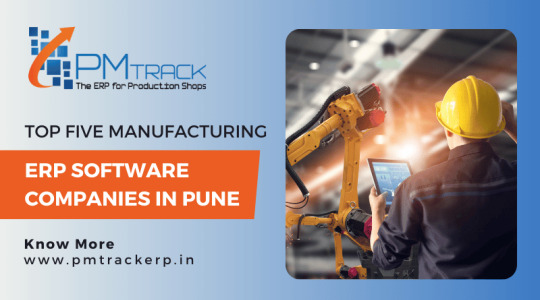
Are you looking for the top manufacturing ERP software companies in Pune to synchronize the processes in your manufacturing industry? If you search online, you can find numerous options, and it is very hard to choose the right one for your business. To make your selection process easier, we made a list of 5 best companies providing manufacturing ERP solutions in Pune. Through in-depth research and analysis based on customer reviews, years of experience, ERP benefits, and company profiles, this list has been prepared.
Here are the best 5 companies offering manufacturing ERP software in Pune:
1.PMTrack ERP:
Well-known as a leading ERP software company in Pune, PMTrack ERP has been serving its customers, especially in manufacturing businesses for many years. This company is recognized for its flexibility and integrated approach. It provides customized, end-to-end solution which is designed particularly for manufacturers.
Benefits of PMTrack ERP:
Designed especially for the manufacturing industry
Tailor-made modules and user-friendly interface
Can be easily integrated with third-party tools including CRM, accounting software, etc.Infor ERP:
Infor ERP is another known name in the market of cloud ERP software for the Manufacturing Industry. Renowned for its advanced manufacturing elements, this ERP has the capability to handle complex manufacturing operations.
Benefits of Infor ERP:
Fulfill unique demands of manufacturers with its tailored, industry-specific solutions.
Unified integration with AI, IoT, and analytics.
Offers cloud-based and on-premise alternatives.
2.Epicor ERP:
In Pune, Epicor ERP is also known for its scalability, flexibility, and increasing productivity for manufacturing companies. It provides ERP solutions that cover everything from supply chain management to finances and product management.
Benefits of Epicor ERP:
Whether you are dealing with automotive, electronics, or fabricated metal manufacture, Epicor ERP has specific solutions for every manufacturing industry.
Flexible options, including cloud-based and on-premise for deployment
Small, medium, or large industries can benefit from its easy-to-use interface that provides an enhanced user experience.
3.SAP Business One:
Renowned globally, including Pune, SAP Business One is a one-stop ERP solution for every small or medium-sized manufacturing company. It allows companies to simplify complex processes to enhance productivity and get in-depth insights.
Benefits of SAP Business One:
The main focus of this ERP software is to automate every process and reduce manual ones.
Its amazing feature of built-in CRM assists in managing customer relationships along with production procedures.
Another feature of a powerful reporting tool is that it is beneficial to get real-time business insights.
4.Odoo ERP:
Another name in the market of ERP software for the manufacturing industry that has recently gained popularity in Pune is Odoo ERP. This ERP is perfect for those companies that want to grow and evolve their ERP system with time.
Benefits of Odoo ERP:
Because of its open-source platform, this is the best choice for those who prefer customized solutions.
Enhanced user experience as it has an easy-to-use interface.
Budget-friendly ERP solution for all types of manufacturers.
5.Infor ERP:
Infor ERP is another known name in the market of cloud ERP software for the Manufacturing Industry. Renowned for its advanced manufacturing elements, this ERP has the capability to handle complex manufacturing operations.
Benefits of Infor ERP:
Fulfil unique demands of manufacturers with its tailored, industry-specific solutions.
Unified integration with AI, IoT, and analytics.
Offers cloud-based and on-premise alternatives.
How PMTRACK ERP Helps:
Manufacturing ERP software and systems are used to plan, manage, and deliver specific features that assist manufacturers and their business activities. Modern manufacturing ERP systems are designed to support and integrate seamlessly into any business process, resulting in a comprehensive business management platform for manufacturers.
It’s time to embrace the future of manufacturing with our cutting-edge business management solutions. Say goodbye to time-consuming manual methods in favour of a more effective approach that boosts output while cutting costs.
Our business solutions, designed specifically for the manufacturing sector, offer a comprehensive toolkit that streamlines all areas of production. Whether you’re managing inventory, optimizing supply chain logistics, scheduling manufacturing runs, or monitoring performance indicators, our solution offers a unified platform for success.
PMTRACK ERP offers the best all-in-one ERP software for manufacturing businesses. Our Manufacturing ERP software is specifically developed to connect core manufacturing business operations while lowering operational expenses for the manufacturing industry.
PMTRACK ERP is a cloud-based manufacturing software that boosts labour efficiency by providing integrated ERP solutions for manufacturing, MRP, BOM, production, planning, purchase, inventory, warehouse, sales, finance, CRM, HR & payroll, and more.
Conclusion:
Consider improving your manufacturing ERP system in Pune with new technology to manage manufacturing operations and business processes. As a result, your manufacturing company will experience cost reductions, increased profitability, and improved business intelligence and decision-making, all of which boost revenue and ROI.
PMTRACK ERP provides solutions that enable manufacturers to be intelligent, agile, and innovative in an ever-changing business environment. That means incorporating real-time reporting and visibility into business operations, the market, and your customers, allowing you to make informed decisions.
PMTRACK ERP software enables manufacturing organisations to respond to internal and external business changes with seamless efficiency. PMTRACK ERP systems not only assist manufacturers in effectively adapting to change and disruptors, but they also help them gain a competitive advantage.
If you are in Pune and looking for manufacturing ERP software in Pune to implement in your company that meets your business requirements, you can associate with these ERP providers in Pune.
#ERP solutions for manufacturing#manufacturing ERP software in Pune#ERP software#ERP software for manufacturing#cloud ERP software for the Manufacturing Industry
0 notes
Text
#erpnext#business growth#erp implementation#business optimization#businesssolutions#manufacturing solutions#inventory management#business software#erp software solutions
2 notes
·
View notes
Text
ERP solution providers in Bhopal | shantitechnology
Looking for the best ERP for manufacturing company in Bhopal? STERP (Shantitechnology) offers cutting-edge manufacturing ERP software in India, tailored to streamline operations, enhance productivity, and drive growth. As trusted ERP solution providers in Bhopal, we deliver industry-specific solutions that optimize production, inventory, supply chain, and more. Whether you need a scalable ERP software in Bhopal or a complete business automation tool, we have got you covered! Choose STERP for industry-leading ERP software providers in Bhopal, seamless integration and real-time analytics, and custom ERP solutions for manufacturing industries, take your business to the next level.
Contact us today.
#ERP for manufacturing company in Bhopal#ERP software providers in Bhopal#ERP software in Bhopal#ERP solution providers in Bhopal#Manufacturing ERP software in India#Madhya Pradesh#Bhopal#ERP Software#ERP solution#Custom ERP
3 notes
·
View notes